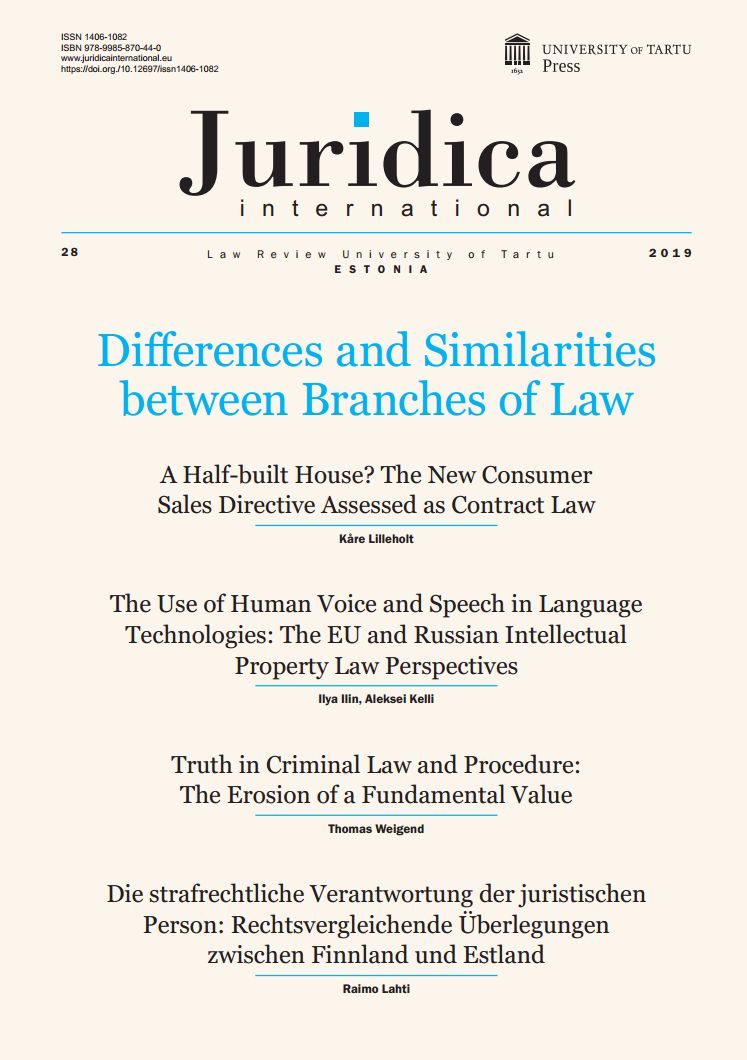Reforms of the Criminal Sanctions System in Germany – Achievements and Unresolved Problems
DOI:
https://doi.org/10.12697/JI.2019.28.05Keywords:
sanctions system in Germany, criminal law reforms, diversion, fines, fine defaulters, suspended sentences, probation, electronic monitoringAbstract
The German criminal sanctions system has witnessed major law reforms in the last 50 years in expanding fines (which have replaced short-term imprisonment) and introducing suspended sentences either with or without the supervision of the Probation Service. The reforms of the 1960s–1980s have been a success and (in combination with the expansion of diversion schemes for minor crimes) have contributed to achieving one of the lowest prison population rates in Europe. However, further reforms are necessary – in particular, with regard to the large number of people serving a prison sentence for defaulting on fines. Germany has, for good reason, restricted electronic monitoring to the very few cases of dangerous offenders (convicted for violent or sexual crimes) who have had to be released after having served their sentence in full or have been released from psychiatric institutions or after other preventive deprivation of liberty.


